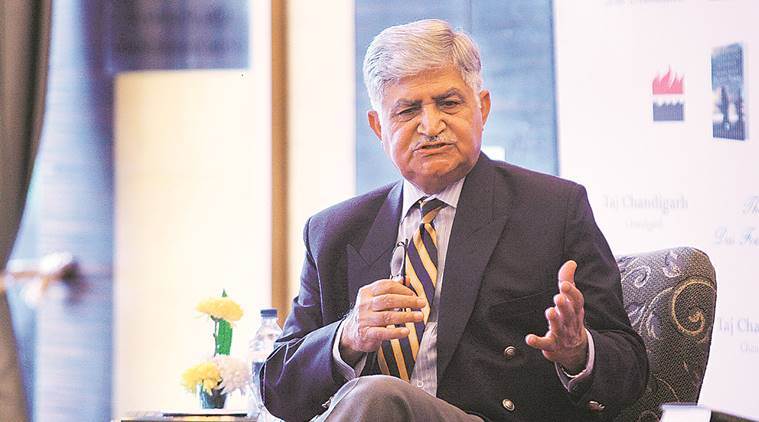 General V P Malik (retd)
General V P Malik (retd)
If talks do not lead to de-escalation, India should be prepared for a long haul at Galwan Valley in Ladakh, as the Chinese troops are well armed, and with the two armies eyeball to eyeball, more such skirmishes could occur along other points on LAC, former Chief of Army Staff Gen V P Malik has warned.
Gen Malik, who led the Army in evicting Pakistani intruders from the Kargil heights in 1999, said, “The Chinese occupation was premeditated and it is apparent from their statements that they are in no mood to withdraw.”
The General said the Chinese People’s Liberation Army first came into the area in the garb of conducting a routine exercise. “They told the media that certain large formations were carrying out an exercise. Then they sprang a surprise by occupying these positions.”
Unlike similar scuffles in the past, this time the Chinese brought heavy weapons such as artillery guns close to the area, he pointed out. “They are also armed with long-range weapons, which could include missiles,” he said.
Calling the Chinese action “salami slicing”, Gen Malik pointed out that the two sides have been going by their own “perception” of the LAC. “Now the Chinese are saying their area includes the position they have occupied,” he said. “Our argument is that we have been patrolling the area so far without any objections from their side…. It is apparent they will not like to leave this position.”
That China’s action is premeditated is apparent from simultaneous actions at several places, Gen Malik said. He said unless India can convince them to go back diplomatically and politically, it is going to be a long-drawn affair.
“If de-escalation does not take place fast, the chances of more such clashes taking place will increase. When you have troops eyeball to eyeball, there is lot of tension, anger, and any small incident can flare up.”
Discounting the military-level talks for their limitations, Gen Malik said, “The ball is now in the court of diplomats and politicians. They have to decide how to move further. It is in the interest of neither China nor India to escalate further.”
Comparing the two troops, Gen Malik said while the PLA has the advantage of mobilising heavy weapons more quickly, given the infrastructure on their side, India has greater experience of mountain warfare. “Having seen our boys in Kargil, I can vouch that we have better human resources — both in skill and quality,” he maintained.
Gen Malik dismissed any comparison of the latest standoff with the Kargil war and said, “The political and military objectives of Kargil war were quite different and it spanned a frontage of over 160 km. That is not the situation now. At the moment, the Galwan Valley (standoff) remains localised.”
Underlining the importance of carrying on with the work on building infrastructure in the area, he said this will give India great advantage. “We are now talking of border territory and frontage of 3500 km.”
On the silence of India’s neighbours, Gen Malik said they are not in a position to take any side unless they feel their own interests are involved. “To them, we are both big neighbours that they don’t want to annoy. But I won’t be surprised if some come up with a statement leaning towards China,” he said.
Gen Malik pointed out how China has been supporting Pakistan over J&K for more than a decade now. “Ladakh was part of J&K. (But) when we revoked Article 370, China protested strongly. With this action, they not only seek to protect Aksai Chin but also take the side of their ally Pakistan on the J&K issue,” he said.
But he was upbeat on Nepal despite the country’s Parliament passing a Bill updating the map to include Indian territory. “The two armies have very good relations. In fact, the Indian army chief is Nepal army’s honorary chief. I was given the badge by the (then) king himself… Our relations may have soured at political level due to domestic compulsions on their side but the army to army relations continue to be good.”
He said, “We recruit soldiers from Nepal, and a large number of their officers come to our military institutions. During my time, I had called their chief to come and take a salute at our passing out parade at the Indian Military Academy (IMA)”.
Gen Malik said he couldn’t see the bitterness lasting for long given the geopolitics, Nepal’s geography and the civilisational and economic relationship between the two nations.